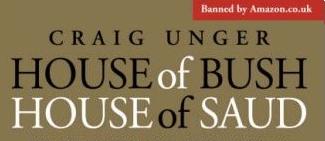(correction made; see comments for details. And hello to readers who have come – rather unexpectedly – via Mark Steyn’s site)
In my previous post I included a link to Roger Kimball’s blog, where details can be found of a recent New York conference co-organised by Kimball and entitled “Free Speech in an Age of Jihad”. Let’s give it a closer look:
Over the last several years, proponents of Islamic jihad have increasingly turned to the courts and government agencies in their effort to suppress criticism of radical Islam. The result has been a proliferation of libel suits and so-called “hate speech” actions that aim to curtail free speech and further the cause of radical Islam.
This is a typical example of the US right’s monomaniacal response to the problem of free expression today. Yes, a Saudi billionaire has used British libel law to suppress books dealing with one of the most urgent areas of public enquiry: namely, the dangers of Islamic extremism. But those libel laws have been hampering free speech for decades – the problem is far too generalised simply to be regarded as a manifestation of what Kimball calls “soft jihad”. Indeed, in the UK some of Kimball’s intellectual soul-mates are quite happy with libel laws as they are – and to use them to dampen critical investigations.
The “hate speech” issue is particularly pertinent to two of the speakers at the conference: Mark Steyn and Ezra Levant, both of whom have come to the attention of the Canadian authorities after making anti-Islam statements. Kimball verges on the apocalyptic as he ponders the reason for this:
…The unhappy truth is that the threat to civilization in the West comes not only from our enemies but also from within…Mark Steyn developed [this] with his characteristic blend of humor and admonitory insight in his luncheon talk, “The Dimming of Liberty: Legal Jihad and the Criminalization of Resistance.”
…Mark’s talk ranged widely, but its central message, he noted, was summed up by the historian Arnold Toynbee: Most civilizations, Toynbee wrote, die from suicide not murder. We in the West preen ourselves on our high standard of living, our freedoms, our pleasures. But what beliefs, what backbone, underwrite those material triumphs? Radical Islam is a fanatical, often a murderous, faith. The welfare-state liberalism of the West is less a faith than a perpetual grievance.
There’s no real analysis here of why “hate speech” laws have come into existence in various countries, except that liberals are weak and self-hating and so willing to appease Islamists (and as for Toynbee, I’m sceptical of guru-like axioms that claim to reveal supposed laws of history). But the fact is that most societies tend to ban discourses that are seen as corrosive of the public good: in the past works regarded as obscene, blasphemous, heretical, or subversive were forbidden; today prejudice against minority groups is regarded (rightly) as one of the most serious social evils and so naturally, following past form, censorship is seen as the easiest way to deal with the problem. This is, of course, a bad idea: as well as being counter-productive, sometimes futile, and inherently undesirable on free speech grounds, whether a piece of writing incites hatred or not is often subjective, and such laws will inevitably be abused by those who want to curtail criticism and debate. These flaws are fatal, but it is absurd to conclude therefore that such laws are created for the benefit of Islamists with bogus “grievances”: if this were so, holocaust denial and homophobic hate speech would not also be banned in various countries (the problematics of banning the latter are discussed in this article by Peter Tatchell). Also, if the west were too morally weak to oppose extremism, Islamists in the UK would not be facing imprisonment for the more clear-cut activity of incitement to violence.
However, Kimball gets one thing right when he mentions the Saudi context. The west has indeed shown a lack of principle and backbone when it comes to this country, and disgust and dismay at the feting of Saudi elites for the purposes of oil and arms dealing (extending to the dropping of a corruption probe in the UK) is perhaps the one subject that unites a broad range of the political spectrum. Kimball notes some Saudi-themed books that have had difficulties being published or distributed in the UK due to repressive libel laws; here’s one he overlooked he didn’t mention in his article, although it was brought up at the conference (note top right-hand corner):
Filed under: Uncategorized | 3 Comments »



